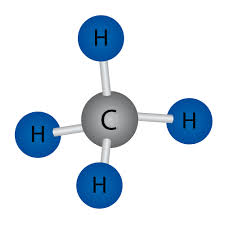
Scepter Taps Stratospheric Technology and Capabilities to Address Methane Emissions
First-of-its-kind methane detection platform is developed and operational to track fugitive methane emissions regionally
SAN FRANCISCO–(BUSINESS WIRE)–Scepter, Inc. successfully launched a High Altitude Platform system with ExxonMobil (XOM:NYSE) to provide continuous, near real-time detection of methane emissions during daylight hours over a vast area of the Permian. The launch, which occurred in October, used Aerostar’s stratospheric balloon technology to sit approximately 60,000 ft. over Poker Lake, N.M.
Scepter, which specializes in using global Earth and space-based data to measure air pollutants in real time, is working with ExxonMobil to form a large constellation network capable of monitoring oil and natural gas operations around the world. As part of this effort, the companies are conducting stratospheric balloon missions to test the technology in high-altitude conditions and expect to evolve the platform into a permanent capability. Data acquired at the stratosphere is a complementary fit into a spectrum of detection capabilities operating across different layers, including satellites.
“We are now providing critical methane data and intelligence regionally to the oil & gas industry through a first-of-its-kind look-down platform,” said Scepter CEO and Founder Philip Father. “We’re operating in parallel with IRA legislation and COP commitments while other systems are still on the ground. Our regional data acquisition capabilities will evolve into global capabilities as customer needs evolve in this direction.”
The methane data generated by the system went directly into Scepter’s data analytics platform, which became operational earlier this year in large part due to the efforts of Amazon Web Services (AWS). This commercial regional detection capability is a foundational cornerstone to Scepter’s broader ambition of monitoring the atmosphere on a global real-time basis through the addition of satellite-based infrared sensors.
“Aerostar is thrilled to be part of such an important commercial offering to reduce methane in the atmosphere, and we pulled out all of the stops for this effort with Scepter,” said Russ Van Der Werff, VP Stratospheric Solutions at Aerostar. “We enhanced our core Thunderhead Balloon system to accommodate Scepter’s payload and data transfer requirements.”
Data acquired from Scepter stratospheric missions is normalized and fused with other sensor data including terrestrial, airborne and third party data to provide customers with information optimized to their methane leak intelligence needs at commercial rates.
“This is a great example of combining our heritage hyperspectral capabilities with commercial off-the-shelf technologies to create Scepter’s payload,” said David Blair, VP technology at Headwall Photonics. “We’re committed to applying our know-how to help solve the climate crisis.”
“ExxonMobil has one of industry’s most aggressive plans in the Permian to achieve near-zero methane emissions from its operated, unconventional assets by 2030,” said Matt Kolesar, Chief Environmental Scientist at ExxonMobil. “Once fully deployed, this technology will be another part of our multi-layered methane monitoring system. We expect to utilize the first satellite, launched by Scepter, with this advanced imaging technology in the next couple years and anticipate increasing coverage to more than 24 satellites over the following three years.”
ABOUT SCEPTER
Scepter has developed and patented a ground-breaking approach to monitoring the atmosphere in real-time using an array of terrestrial, airborne and Low-Earth-Orbit satellite-based sensors to provide actionable information for businesses, consumers, governments and NGOs—what amounts to aggregating the largest footprint of atmospheric information on the globe.
These capabilities are not only critical for solving the global pollution and climate change crises, but also provide a platform for an emerging multibillion-dollar, commercial atmospheric monitoring industry with markets in government, energy, industry, healthcare, agriculture, insurance and cosmetics.
Scepter distinguishes itself among other air monitoring entities in that its measurements are global and in real-time and measure a variety of emissions: particulates, methane and other criteria pollutants. For more on Scepter, visit www.ScepterAir.com.
Contacts
Jennifer Black

